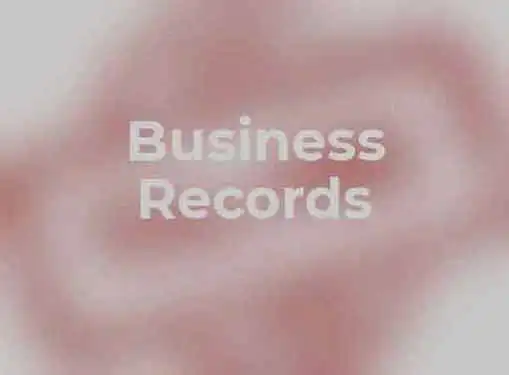Running a Small Business
Advice on Business Recordkeeping
Managing archives and expense records is an essential skill for anyone who is running a small business. We offer some great advice on business recordkeeping.
Business owners constantly underestimate the importance of thorough record-keeping.

Besides requiring carefully-kept records to make proper tactical decisions, business proprietors will run into a world of legal trouble if they are unable to produce proper documentation of disputed transactions or contracts.
However, record-keeping can be somewhat of a time-consuming pursuit, when done right. For this reason, most large companies employ archives divisions just to keep track of their files. Small businesses, on the other hand, do not have the resources or the personnel to devote to establishing and maintaining their archives; they must manage their records themselves. Developing a uniform and easily-understood system for recording business transactions and other decisions can help cut down on the time that you dedicate to this dull necessity.
Make sure that you have what you need
All too often, business owners oversimplify the data that they include in their record-keeping. For example, lets say that the owner of a guitar shop records the price of every repair performed on a guitar, the name and phone number of the guitar's owner, and the type of repair that was performed.
This information will be perfect if the proprietor needs to contact a customer. However, it will be downright useless should an employee break or misplace an instrument, as the owner has forgotten to include the model or serial number of each guitar. If you can categorize and record a particular datum, it is probably better to do so.
Don't cut corners
While letting the documents pile up before you archive them may seem like an attractive idea when you are busy with billable work, don't let them sit on your desk. Anonymous pieces of paper have a way of disappearing into janitors' wastebaskets or crevices behind bookshelves, so it's a good idea to finish filing documents and memos before they have a chance to get lost.
Keep the evidence
While no one wants to believe that business is full of crooks and cheats, the fact remains: business-to-business lawsuits are all too common. If you ever have to face a jury in a breach-of-contract suit, being able to produce an original, signed copy of the agreement in question may mean salvation for your business. While it's always a good idea to electronically archive each contract that your company enters into, there is no substitute for a solid filing cabinet, organized by date and parties involved.
Know where the money is
One of the central purposes of record-keeping is to track who is being paid for what. If your company frequently pays or bills third-parties, make sure that you keep carefully organized records documenting who was paying whom, the amount of the payment, the date the bill or payment was sent, for what good or service they were paid, and whether the aforementioned payment has yet been remitted.
A well-kept archive can help to prevent expensive and inconvenient business mistakes. While the job of record-keeping is a thankless one, it is an investment towards the future of your company, not a task to be noted and filed away.
Share this article
Additional Resources for Entrepreneurs



Conversation Board
We greatly appreciate any advice you can provide on this topic. Please contribute your insights on this topic so others can benefit.